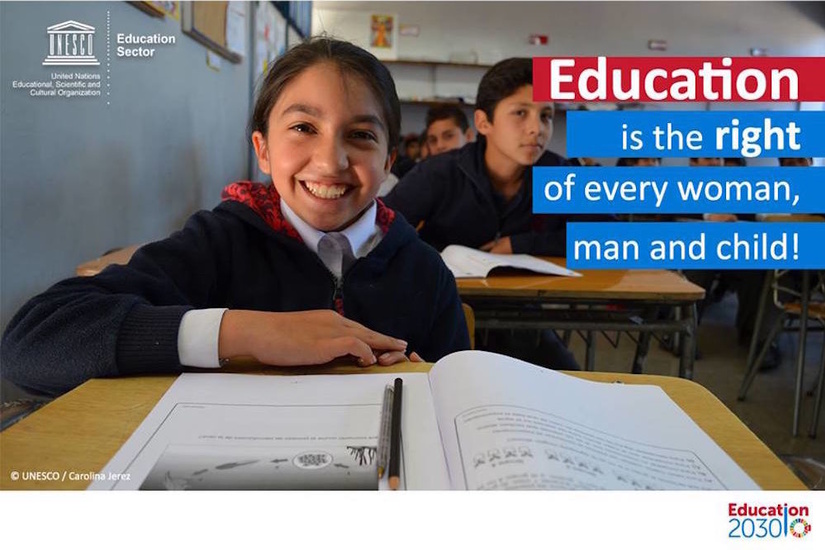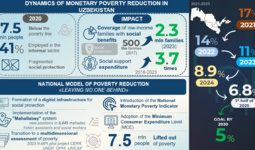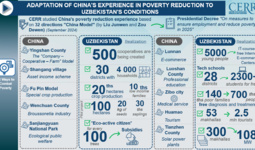UNICEF is calling for investment in girls' education, access to information, capacity building, empowerment and equal employment opportunities for young women to create more equal future for girls and women.
This year’s theme “Women in leadership: Achieving an equal future in a COVID-19 world” seeks to join efforts to ensure girls’ and women’s equal participation in all spheres.
"The women we see in leadership today, had opportunities in the past: Opportunities to get an education, to access resources, to get a job. Let us accord such opportunities to girls and young woman in Uzbekistan today,” said Munir Mammadzade, UNICEF Representative in Uzbekistan.
While much has been achieved for girls and women, much remains to be done to create equal opportunities. Recent evidence shows that girls in Uzbekistan are much more excluded from higher education than boys with only 37 % of students enrolled in universities being girls. Further, in the area of employment young women, are hugely excluded from the job market.
Achieve gender equality and empower all girls and women globally
Gender equality is not only a fundamental human right, but a necessary foundation for a peaceful, prosperous and sustainable world.
There has been progress over the last decades: More girls are going to school, fewer girls are forced into early marriage, more women are serving in parliament and positions of leadership, and laws are being reformed to advance gender equality.
Despite these gains, many challenges remain: discriminatory laws and social norms remain pervasive, women continue to be underrepresented at all levels of political leadership, and 1 in 5 women and girls between the ages of 15 and 49 report experiencing physical or sexual violence by an intimate partner within a 12-month period.
Benefits of economic empowerment
- Women’s economic empowerment is central to realizing women’s rights and gender equality. Women’s economic empowerment includes women’s ability to participate equally in existing markets; their access to and control over productive resources, access to decent work, control over their own time, lives and bodies; and increased voice, agency and meaningful participation in economic decision-making at all levels from the household to international institutions.
- Empowering women in the economy and closing gender gaps in the world of work are key to achieving the 2030 Agenda for Sustainable Development and achieving the Sustainable Development Goals, particularly Goal 5, to achieve gender equality, and Goal 8, to promote full and productive employment and decent work for all; also Goal 1 on ending poverty, Goal 2 on food security, Goal 3 on ensuring health and Goal 10 on reducing inequalities.
- When more women work, economies grow. Women’s economic empowerment boosts productivity, increases economic diversification and income equality in addition to other positive development outcomes.For example, increasing the female employment rates in OECD countries to match that of Sweden, could boost GDP by over USD 6 trillion, recognizing, however, that growth does not automatically lead to a reduction in gender-based inequality. Conversely, it is estimated that gender gaps cost the economy some 15 percent of GDP.





















leave a comment